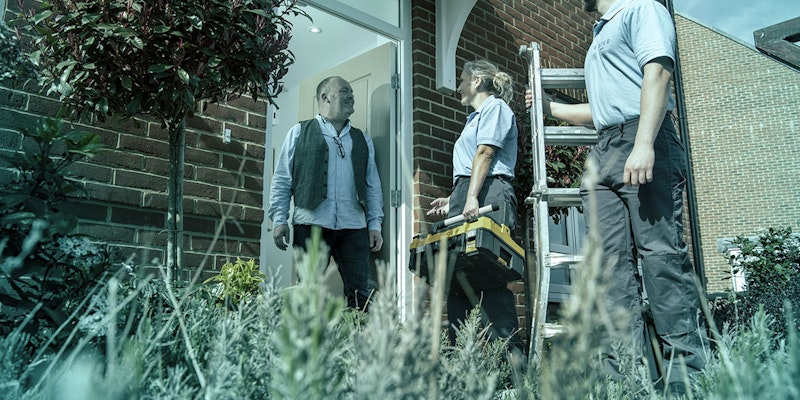
Bjorn Howard
Group chief executive officer
Introduction
Welcome to our third Environmental, Social and Governance (ESG) Report. This year’s report gives us the opportunity to take stock of the progress we’ve made since our inaugural report in 2020, . This year, we’ve indexed our delivery against the Sustainability Reporting Standard (SRS) for social housing (both ‘Core’ and ‘Enhanced’). We have also benchmarked our credentials against the United Nation’s Sustainable Development Goals (SDGs). These universally recognised goals include a focus on reducing inequalities, creating sustainable cities and communities, and addressing climate change.
We hope our new interactive report allows readers to quickly focus on specific areas of interest, and clearly see how the SRS and UN SDG criteria have been met as a result of our actions.
The last financial year was an extraordinary one, with world events causing uncertainty and unrest. The legacy of the COVID-19 pandemic, and the conflict in Ukraine along with the energy crisis and rising inflation emerging as new challenges.
While we can’t control or mitigate against all these factors, there are some measures we can take. For our customers who may be concerned about their rent, we continue to work with them compassionately and with respect for their circumstances. We strive to pay our people fairly and provide both them and our customers with tools and resources to help manage their finances.
As well as affecting the money customers have in their pocket, challenges like these also have an impact on our business too. As the cost of living, materials and borrowing rises, so too does the amount of money we need to spend on ensuring our homes are well maintained, in providing modern, reliable services and in building new affordable homes for people that need them.
To ensure our transformation ambitions are delivered, part of the role my Executive Board colleagues and I play is to ensure sound management and governance strategies are in place to meet these challenges.
We’ve made good progress this year. We’ve demonstrated that our overall Governance is sufficiently independent. Retaining our Standard & Poor’s A+ rating, recognising our strong management and finances has have been key to us successfully navigating a challenging period for the social housing sector. We also continue to hold G1/V1 ratings from the regulator.
The long-term sustainability of our business underpins all our decisions. Key to this is how we gather data and deploy the insights it provides. We have undertaken our own independent net zero assessment of our existing stock and are one of only a few housing associations that has taken the vital step to survey all our homes. This ambitious £2.8 million project will allow us to target our resources now, as well as plan for long-term investment, progressing our energy efficiency and longer-term sustainability roadmap to 2050.
Although the average energy efficiency rating for a dwelling in England and Wales is band ‘D’, we’re also continuing to work towards every one of our homes receiving an Energy Performance Certificate (EPC) rating of ‘C’ or above before 2030. During the last financial year, 97.86% of the new homes we delivered have an EPC rating of B and we are committed to continuing to build to this standard, as well as introducing the Environmental Impact Rating (EIR) of B or above as a consideration in the appraisal stage of the planning process.
To continue to deliver the good services to our customers in the longer term, we need to make sure that we continue to retain and attract the most talented people. Our business-wide transformation, Programme Experience, will enable us to continue to evolve the way we work so we have a compelling colleague offer to continue to deliver homes and services for many years to come.
We provide flexibility and choice for where our people choose to work. This approach has reduced the need for employees to travel and has seen us lower grey fleet mileage by 61% in 2021/22 compared to the pre-pandemic baseline year of 2019/20*.
The Aster Foundation has secured its status as a charity during the 2021/2022 year, enabling it to expand its impact programmes to many more customers in these communities. Alongside this, Aster inc. our social incubator, is now in its second year, helping entrepreneurs and start-ups with the expertise they need to thrive and provide jobs and opportunities in communities across the country. As well the examples in this report, you can see more detail in the Foundation’s Social Impact Report.
Since our first sustainable debt issuance in January 2021, we have remained committed to ensuring proceeds are aligned to our Framework for Sustainable Finance. This report here details the allocation of funds to eligible projects and the impact they’ve had. This analysis was further scrutinised by Sustainalytics who which produced two external independent reports to verify the allocation of proceeds and assess the Green Buildings impact.
We believe in evidence-based, data-led intelligence to ensure investment is accurately targeted for maximum effect. We will continue to provide safe, affordable homes to people who need them, in a way that protects the biodiversity of our communities and lowers our carbon footprint.
* Data for which excludes East Boro Housing Trust and Central and Cecil Housing Trust – both now part of the group

